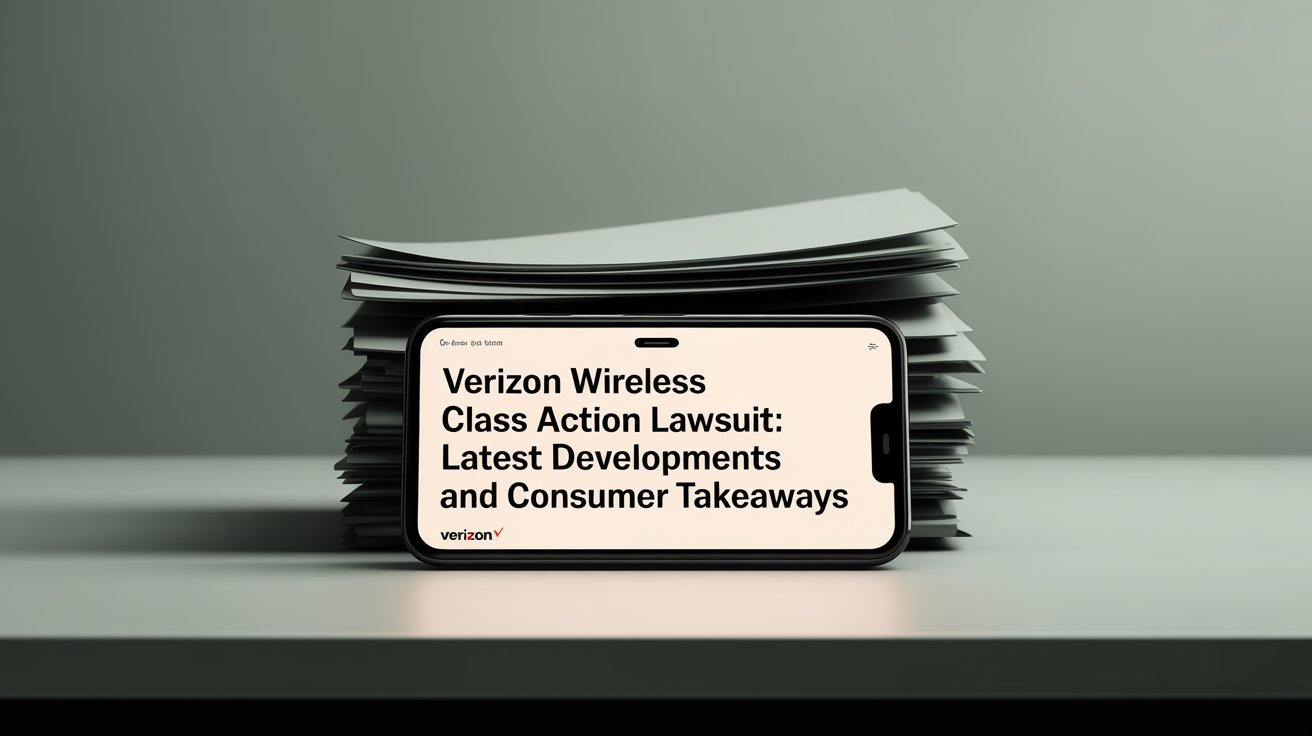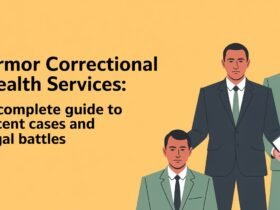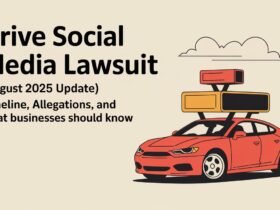Introduction
The verizon wireless class action lawsuit involving undisclosed administrative fees has re-emerged as a topic of widespread interest among consumers and legal observers alike. Originally filed to address allegations that Verizon Wireless failed to properly disclose certain administrative or surcharge fees in its postpaid wireless plans, the case has evolved through settlement approvals, appeals, and ultimately disbursement of funds. With recent payouts now arriving and a new lawsuit affecting store commission practices approved for settlement, the landscape around Verizon class actions continues to develop. This article explores the details of the administrative fees settlement, the payouts consumers are receiving, a separate commission-related lawsuit, and what all of this means for Verizon users in 2025.
The $100 Million Administrative Fees Settlement: What You Should Know
At the heart of the action is the class action settlement in which Verizon Wireless agreed to pay up to $100 million to compensate customers who paid undisclosed administrative or “Telco Recovery” charges between January 1, 2016, and November 8, 2023. Eligibility hinged on having postpaid wireless or data service plans during that period and actually being charged those fees. Final approval for the settlement was granted on April 26, 2024, after which there were appeals that delayed payout distribution.
Most claimants were required to file their claims by April 15, 2024, although they could opt out or object before specified February deadlines. The appeals were eventually resolved, and payments were slated to begin as early as December 2024, though some delays ensued. By early January 2025, customers began reporting settlement payments appearing in their accounts.
Real‑World Payouts: Consumer Reactions and the Reality
While the settlement touted a minimum entitlement of $15 per eligible account, plus $1 for each month of eligibility, up to $100 total, many users received significantly less. Reports surfaced of small payout amounts, ranging from just a few dollars to under $15, despite the promise of a minimum reward.
On Reddit, users vented frustration. One user announced:
“I have just received my class action lawsuit payment via Zelle … I received a whopping $14.81.”
Another quipped sarcastically that the lawyers “are the ones really celebrating,” reflecting a pervasive sentiment that the legal fees outweighed individual gains. Across Reddit threads, users reported payouts like $8.44, $5.00, $3.11, $14.81—hardly commensurate with years of loyalty or the promised $100 cap.
This discrepancy is partly due to the settlement structure: the exact payout depended not only on the claimant’s eligibility duration but also on how many valid claims were submitted. As more claimants filed, per-user amounts dropped, diluting the total fund across the class.
A New Lawsuit: $13 Million Settlement in Store Commission Dispute
In a separate class action matter, a judge recently approved a $13 million settlement concerning disputes over how an operator of Verizon Wireless stores—specifically Go Wireless—calculated employee commissions. Though Verizon itself wasn’t a defendant, the suit stemmed from computer glitches and system errors that allegedly deprived store employees of earned commissions.
The class was certified to include over 15,000 individuals, with nearly 8,000 claimants responding to notices and seeking funds. Some will receive payouts over $10,000, while many others may receive between $100 and $1,000, depending on their individual sales performance. Attorney fees amount to 40% of the fund—over $5 million—which adds to frustrations about class action fairness, particularly when participants receive modest sums.
What Consumers Should Do Now
If you’re wondering whether you’re eligible for either of these suits or believe you should have received more, here’s what you can do:
- Administrative Fees Settlement: If you received a notice and filed a claim, double-check your status and payment method (Zelle, prepaid card, etc.). Even small payouts like $3 or $5 count—but review your account details to confirm receipt.
- Store Commission Settlement: If you worked in a Verizon store’s Go Wireless location, check eligibility for claims in the latest commission-based suit. The settlement includes a broad class, and amounts vary based on performance metrics.
- Stay Informed: Keep an eye on official settlement websites for updates and FAQs. Information on appeals, delayed distributions, and final payout amounts is often available there.
- Voice Your Experience: If you believe your payout doesn’t align with your service duration or charges, consider sharing your experience (anonymously) on forums like Reddit. It helps shed light on how these mechanisms function in practice.
Why the “verizon wireless class action lawsuit” Matters
This case exemplifies the double-edged nature of class action litigation in consumer law:
- Collective Reach vs. Individual Outcomes: Class actions help empower large groups of consumers, but once legal and administrative costs are deducted, the individual benefit can be minimal.
- Transparency & Corporate Behavior: The administrative fees suit underlined concerns about deceptive billing practices. While Verizon denies wrongdoing, the settlement underscores the value of oversight and accountability.
- Legal Complexity: A single corporate entity can be subject to multiple suits—as seen with administrative fees, store commission models, and even pensions or accessibility suits in other sectors—creating a patchwork of consumer redress opportunities.
- Engagement Required: Consumers must file claims and monitor updates. Passive eligibility is rarely enough to ensure compensation.
Final Thoughts
The verizon wireless class action lawsuit over undisclosed administrative charges has become a real-world lesson in consumer rights, legal nuance, and the limitations of large-scale settlements. While the promise of up to $100 per account generated attention, many claimants have received modest amounts far below expectations. A freshly approved $13 million class action related to store employee commission calculation adds another layer to this unfolding narrative.
Whether you’re a long-time Verizon customer or a former employee affected by policies or billing practices, being proactive—filing claims, tracking payments, and seeking clarity—is essential. Class actions can deliver meaningful relief, but only if participants actively participate and understand the settlement dynamics.
Also read more interesting topics at mgtimes.co.uk.







Leave a Reply